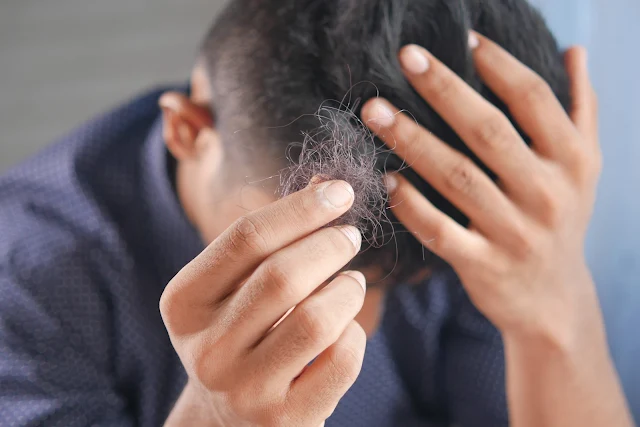Hair loss is a common problem among men, and it can occur at any age. The condition is often associated with genetics, but other factors such as stress, poor nutrition, and medical conditions can also contribute to hair loss. Fortunately, there are several hair loss treatments available for men. In this article, we will discuss five effective hair loss treatments for men.
Minoxidil
Minoxidil is a popular over-the-counter treatment for hair loss. It is a topical solution that is applied to the scalp twice a day. Minoxidil works by increasing blood flow to the hair follicles, which can stimulate hair growth. It is effective for treating androgenetic alopecia, which is the most common form of hair loss in men.
Minoxidil is available in two strengths, 2% and 5%. The 5% solution is more effective, but it can also cause more side effects such as scalp irritation and dryness. It may take up to four months to see results from minoxidil, and the treatment must be continued to maintain the hair growth.
Finasteride
Finasteride is a prescription medication that is used to treat male pattern baldness. It works by blocking the conversion of testosterone to dihydrotestosterone (DHT), which is a hormone that contributes to hair loss. Finasteride is taken orally once a day, and it has been shown to be effective in preventing further hair loss and promoting hair growth in men.
Finasteride can cause some side effects such as decreased libido, erectile dysfunction, and breast tenderness. However, these side effects are rare, and most men tolerate the medication well. It may take up to six months to see results from finasteride, and the treatment must be continued to maintain the hair growth.
Hair Transplantation
Hair transplantation is a surgical procedure that involves removing hair from the back or sides of the head (where hair is resistant to balding) and transplanting it to the balding areas. The procedure can be performed under local anesthesia, and it usually takes several hours to complete. Hair transplantation can be a very effective hair loss treatment for men who have advanced hair loss.
The results of hair transplantation are permanent, and the transplanted hair will grow just like the hair in the donor area. However, the procedure can be expensive, and it may require several sessions to achieve the desired results. It also requires a recovery period of several days to a week, during which time the patient must avoid strenuous activities and avoid touching the scalp.
Laser Therapy
Laser therapy is a non-invasive hair loss treatment that involves using low-level laser light to stimulate hair growth. The treatment is painless and can be done at home using the best Laser Hair Growth Devices. Laser therapy works by increasing blood flow to the scalp and stimulating hair follicles to grow.
The results of laser therapy are not as dramatic as hair transplantation or medication, but it can be effective in slowing down hair loss and promoting hair growth. It may take several months to see results from laser therapy, and the treatment must be continued to maintain the hair growth.
Scalp Micropigmentation
Scalp micropigmentation is a non-surgical hair loss treatment that involves tattooing tiny dots on the scalp to mimic the appearance of hair follicles. The procedure is done using a small needle and can be done in a few hours. Scalp micropigmentation can be a very effective hair loss treatment for men who want to conceal their balding areas.
The results of scalp micropigmentation are immediate, and the treatment is relatively painless. However, it is not a permanent solution, and the pigment will fade over time. The treatment may need to be repeated every few years.










No comments